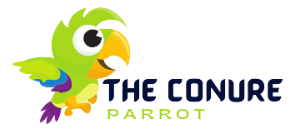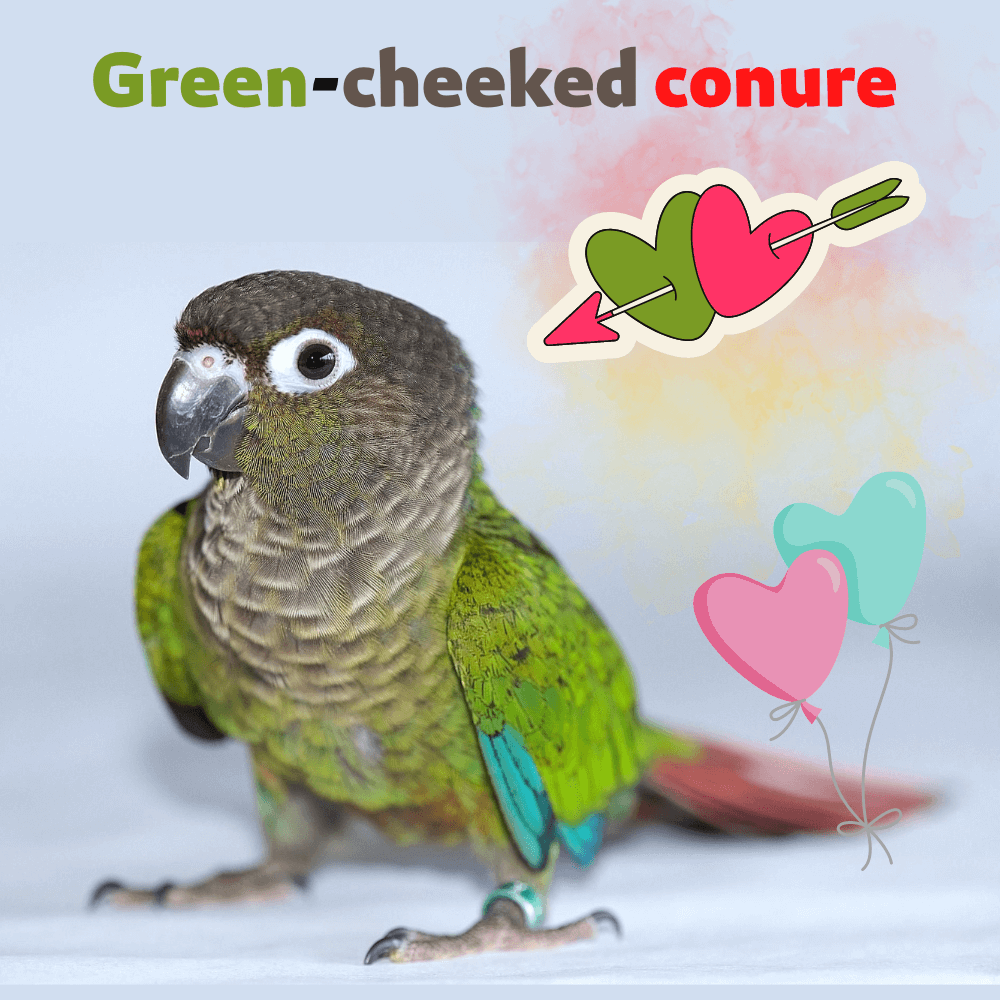Green-cheeked conure (Pyrrhura Molinae) is a charming parrot full of qualities. He is a perfect family friend. Particularly sociable, he is an actor in your life. However, very independent, and he will be able to occupy himself by playing alone.
- Good health / robust
- Suitable for indoor living
- Suitable for family life
- Friendly with animals
- Easy to maintain / groom
- Clever
- Player
- Affectionate
- Calme
- Independent
Green-cheeked conure habitat
the Green-cheeked Conure is a member of the Psittacidae family. This bird is found in freedom in Argentina, America, Bolivia, and Brazil where the five subspecies that subdivide the Pyrrhura Molinae are distributed: The Pyrrhura Molinae australis, the Pyrrhura Molinae Molinae, the Pyrrhura Molinae Sordida, the Pyrrhura Molinae Sordida, and Pyrrhura Restricta.
These five subspecies are difficult to identify, details on the dresses are the only clues. In its natural environment, it lives in colonies in the forests.
Green cheek conure appearance
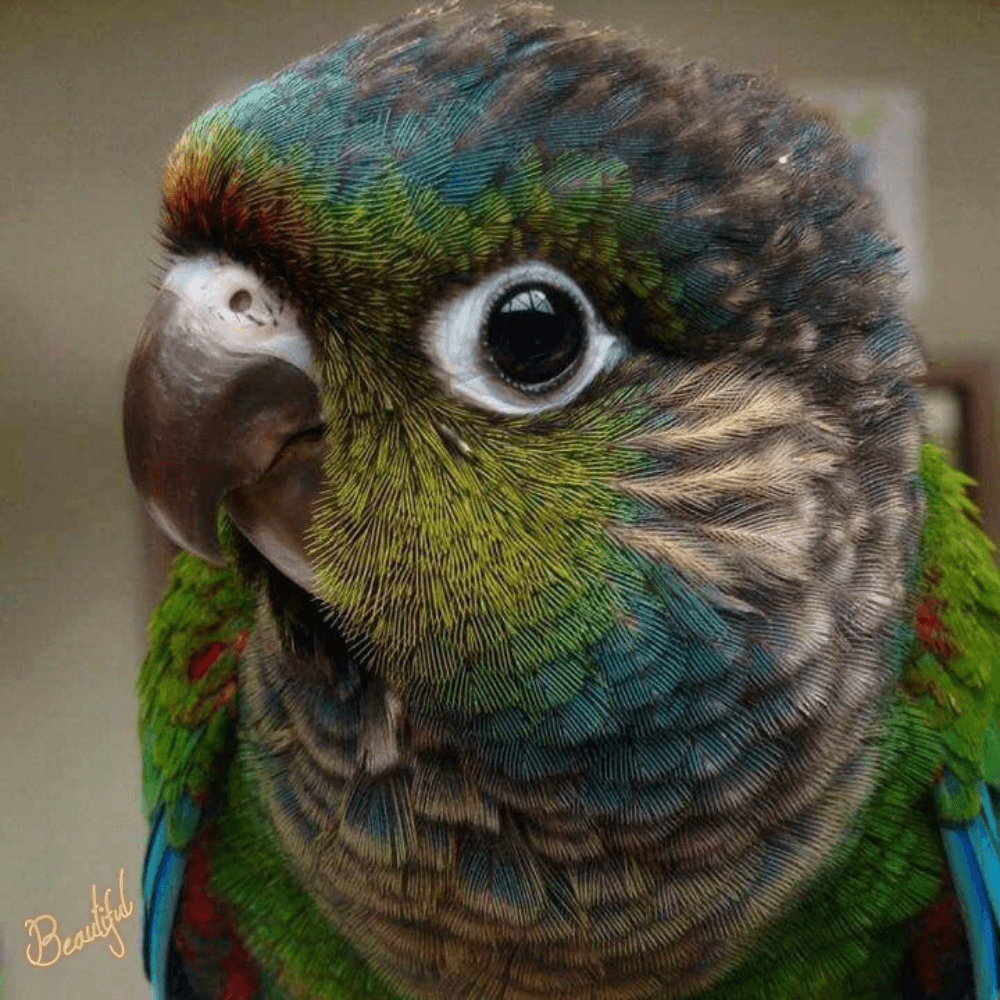
It is a parrot recognizable thanks to its hooked beak, its colors (with a predominance of green), its red tail. His eyes, round and black, are hemmed in white. The conure is slightly stocky. There is no dimorphism between males and females and only a DNA test will allow them to be differentiated.
A debate exists on the difference between parrots and parakeets that we find difficult to decide.
Green-cheeked conure size
Weight: Its weight is around 80-100 grams.
Size: It measures between 20 and 30 cm approximately, which makes it a medium-sized bird.
Green cheek conure feathers
Also called green-cheeked conure, this bird has shimmering colors with green as its base color. Its wings are often cyan blue. As for its chest and tail, they are cherry red in color. A festival of colors!
Green-cheeked conure personality
This conure is particularly known for its character traits that will make it an exceptional friend. Indeed, the conure is affectionate: it will not hesitate to come and curl up in your arms and ask for your caresses. This bird lives both in your company and alone, and it will take pleasure in playing for a long time in its aviary: hence the interest of providing it with many toys.
Indeed, this bird is dynamic and sparkling and likes to exercise. If you keep it in an aviary it will have to be of a substantial size otherwise your friend will end up getting bored and sometimes even becoming aggressive.
The conure is of a curious nature, so you will have to be vigilant and check that it does not risk getting hurt. Regarding their cries, everyone can be annoyed or on the contrary seduced by their vocalizations.
Green-cheeked conure lifespan
The life expectancy of this species is between 25 and 30 years.
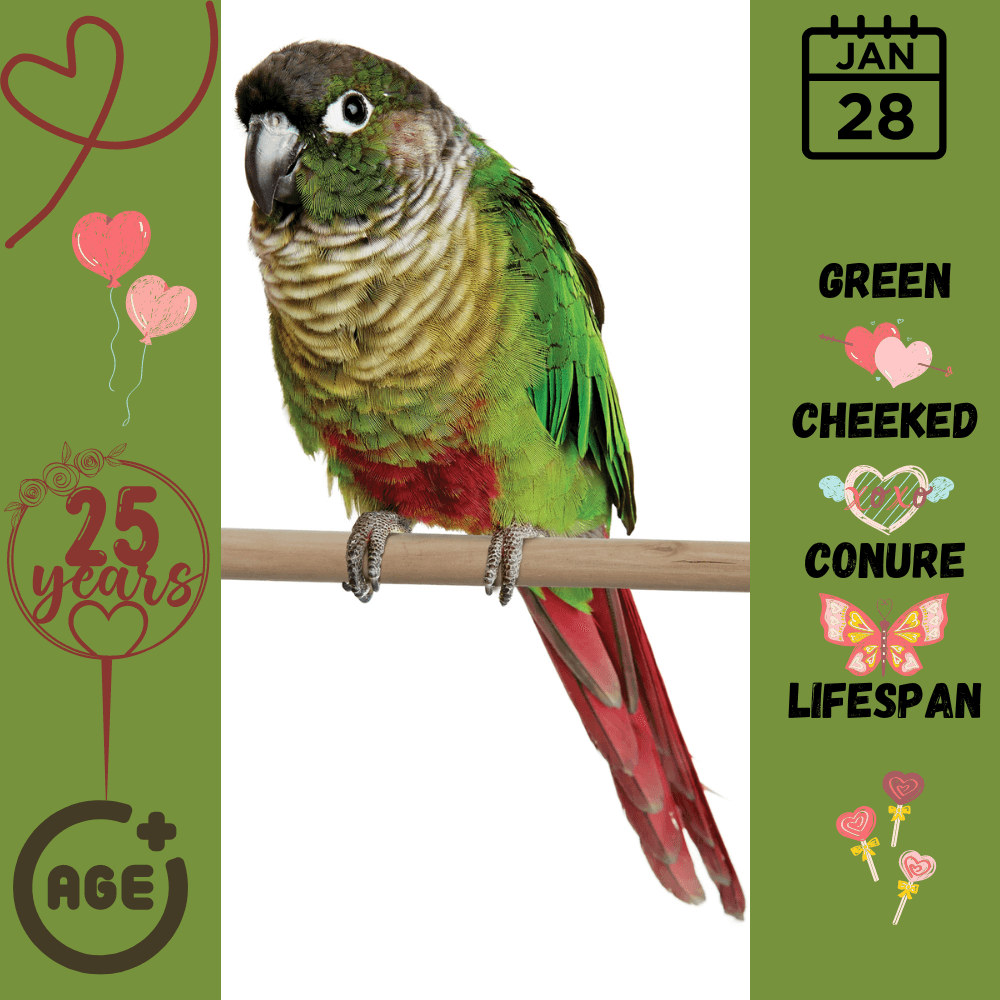
Green cheek conure health
Initially, it is advisable to make an appointment with the veterinarian to check that your bird is not carrying diseases. Of course, it will also be necessary to isolate him upon his arrival in order to protect other birds from an infectious disease.
The most common diseases:
- Chlamydiosis, this contagious disease for humans is certainly one that all bird lovers know. Symptoms you will observe in your bird are diarrhea, runny eyes, respiratory problems, he will barely eat and vomit.
- PBCD, commonly known as beak and feather disease, is a fatal disease caused by a virus. The beak during its regrowth will take on anomalous shapes and the feathers will become dull and fall off.
- Pacheco’s disease is caused by herpes and can affect all parrots and parakeets. The main symptom observed will be the urine of an avocado green color caused by the attack on the liver; the general condition of your bird will also alert you: it will become amorphous.
- PDD is characterized by dilatation of the preventable (pocket located before the stomach). It loses weight and the bird no longer digests its food, and its smell is particularly unpleasant. The origin of this disease can be explained by the fact that, in freedom, your bird may have swallowed lead paints that are still found on our walls or railings.
Your parrot should be screened for these diseases as soon as they arrive; It is fatal and contagious. Only a screening by the veterinarian will make the diagnosis.
Contamination occurs in several ways: by sneezing, and by breathing in the dust released by feathers and droppings.
Green cheek conure adoption
This bird is fabulous. He will adapt very easily to his environment and to all the members of the family. It could be that he shows more affection towards a member of the family, which will not prevent him from being very sociable with the whole family.
The conure likes to play and have fun, do not hesitate to offer it many toys rather in wood, rope, or leather. Pet stores are full of them.
It is a bird that loves water, so it is essential to offer it containers in which it can bathe. It should be noted that the conure likes to keep its environment clean, it will throw all the waste seeds and their droppings outside its cage. This, therefore, requires maintenance of the exterior of the cage.
Green cheeked conure diet
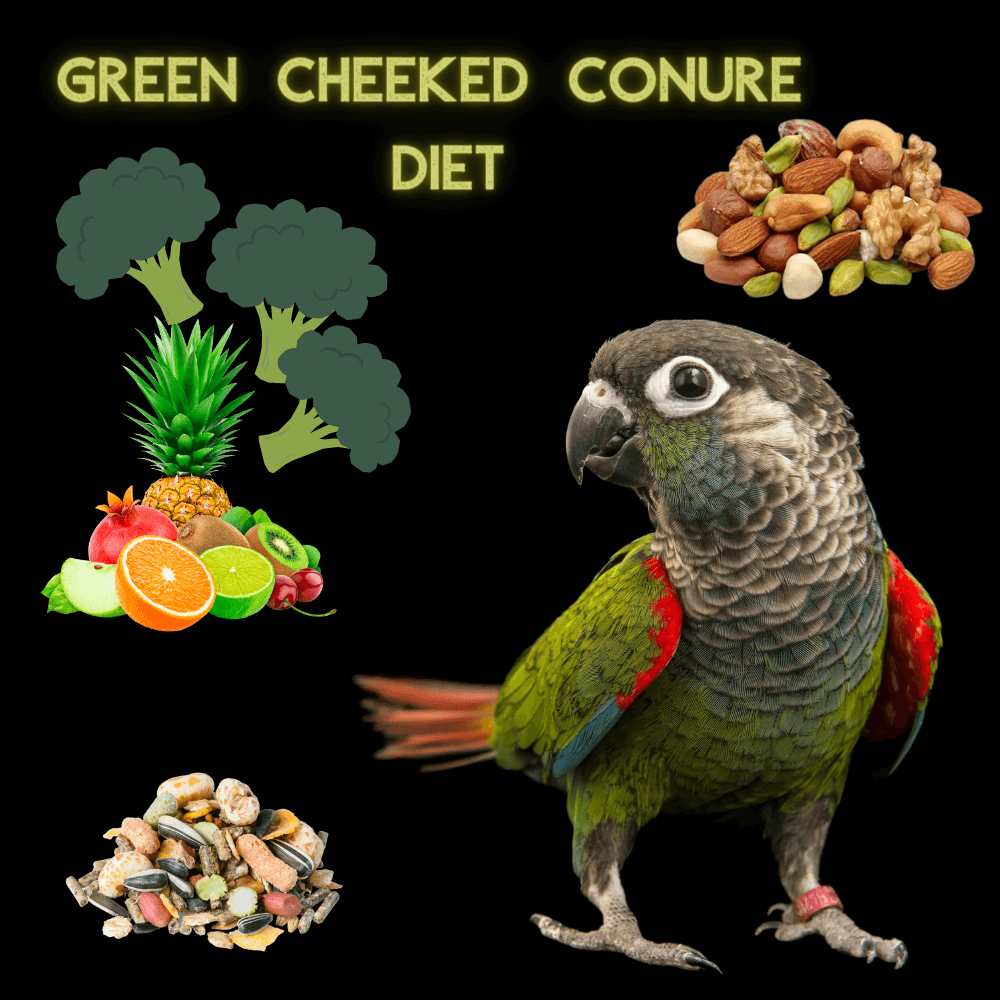
A balanced diet is essential. It should therefore not be based solely on seeds that are sometimes too rich in fat. There are suitable mixtures rich in vitamins in pet stores. It is necessary to leave at his disposal a bowl with clean food because your bird will feed all day.
Your very greedy conure will also appreciate treats made from millet or honey.
The permanent presence of clean water in its bowl is essential, a lack of water can have dramatic consequences for your bird.
Read more:
